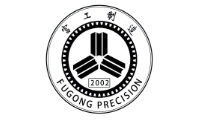
In which industries do wear-resistant molds play an irreplaceable role?
Publish Time: 2025-05-14
As an indispensable tool in industrial manufacturing, the main function of wear-resistant molds is to maintain long-term stable working conditions in an environment with high wear, high pressure and high frequency of use. Due to its excellent wear resistance and durability, wear-resistant molds play a vital role in many industries.1. Automobile manufacturing industryStamping: In the production process of automobile body parts (such as doors, hoods, fenders, etc.), wear-resistant molds are used for stamping processes. Such molds need to withstand huge pressure and frequent use, so their wear resistance directly affects the quality of the product and the efficiency of the production line.Parts manufacturing: Various precision parts inside the car (such as gears, bearings, connecting rods, etc.) also need to be processed by wear-resistant molds. These molds not only require extremely high precision, but also need to have excellent wear resistance to cope with long-term continuous production.2. Electronic components industryPrecision blanking: For tiny components in electronic products (such as connectors, lead frames, etc.), wear-resistant molds are used for precision blanking operations. These molds must ensure high consistency and accuracy while maintaining a long service life while working at high speeds.Injection molding: Many electronic device housings (such as mobile phone cases, laptop cases, etc.) are manufactured through injection molding. Wear-resistant molds ensure the surface quality and dimensional accuracy of the product during this process and reduce product defects caused by mold wear.3. Building materials industryTile pressing: The production of tiles usually involves a pressing process, in which wear-resistant molds are used to press the mixed ceramic raw materials into shape. This mold needs to be able to resist wear under high temperature and high pressure environments to ensure the quality and output of the tiles.FRP products: FRP products used in construction (such as door and window frames, decorative panels, etc.) also rely on wear-resistant molds to complete the molding process. These molds must not only be wear-resistant, but also have good corrosion resistance to adapt to different production conditions.4. Hardware products industryMetal sheet processing: Various hardware products (such as locks, hinges, handles, etc.) often require cutting, bending or punching of metal sheets. Wear-resistant molds provide the necessary strength and wear resistance in such processing, thus ensuring the quality of the product and the continuity of production.Fastener manufacturing: In the production process of fasteners such as screws and nuts, wear-resistant molds are used for cold heading and thread rolling. Such molds need to maintain good working conditions under high-intensity and high-frequency operating conditions to avoid affecting product quality due to wear.5. Aerospace industryAircraft engine component manufacturing: Many key components in aircraft engines (such as turbine blades, combustion chamber components, etc.) need to undergo rigorous molding and processing processes. The application of wear-resistant molds here not only improves production efficiency, but also ensures the reliability and safety of these high-performance components.Composite molding: The molding of carbon fiber reinforced plastics (CFRP) and other advanced composite materials widely used in the aerospace field cannot be separated from the support of wear-resistant molds. These molds can provide stable molding effects under extreme conditions and meet the strict requirements of aerospace products for light weight and high strength.6. Packaging industryPlastic bottle blank molding: The production of plastic containers such as beverage bottles and cosmetic bottles usually starts with an intermediate product called "bottle blank". Wear-resistant molds are used in PET preformers to heat and inject granular plastic raw materials into the mold cavity to form a preform. The design and material selection of such molds are crucial to ensure the quality of the preform.Carton die-cutting: In the carton manufacturing process, wear-resistant molds are used in the die-cutting process of cardboard. They ensure that each carton can be cut accurately according to the design specifications, while also improving the speed and efficiency of the production line.In summary, wear-resistant molds play an important role in many industries due to their excellent wear resistance and stability. Whether it is large-scale industrial production or precision small-batch customization, wear-resistant molds are one of the key factors to ensure product quality and improve production efficiency.

